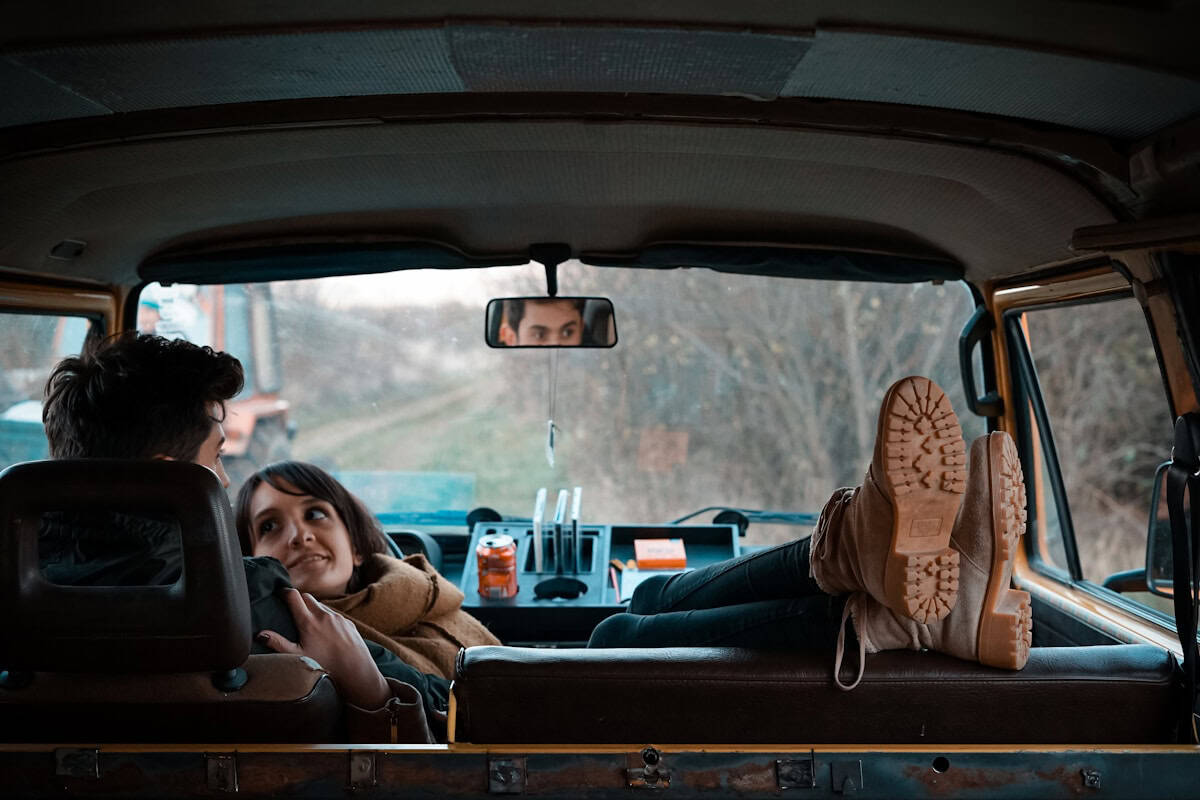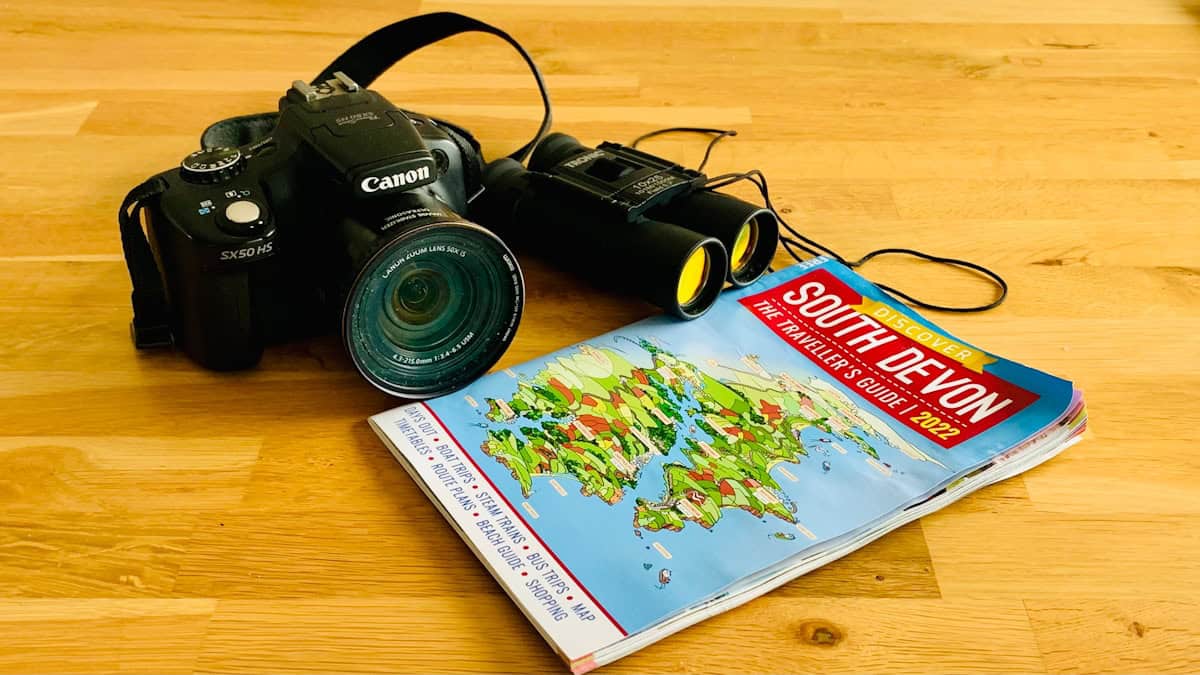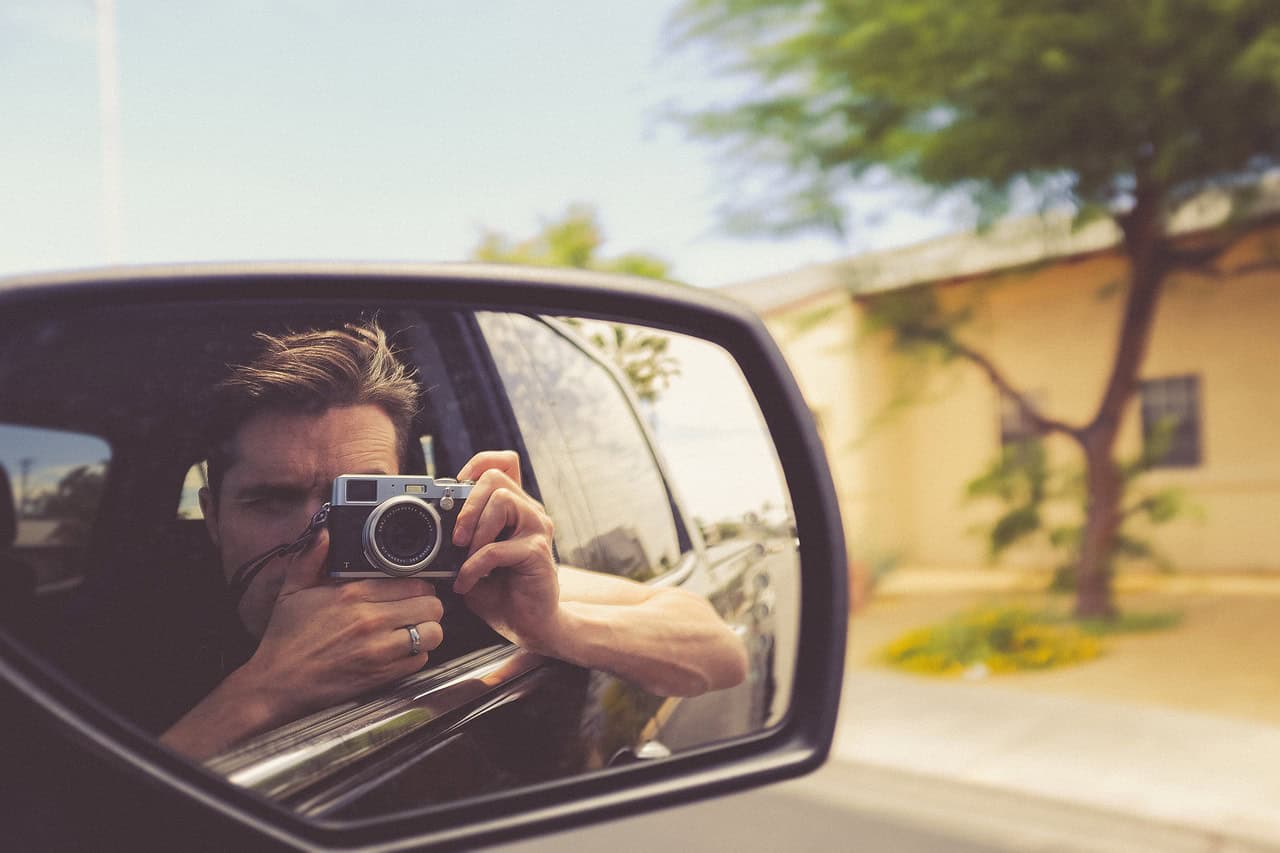
What To Do When You Need Space From Your Road Trip Partners
By: Frayed Passport
Skip to Section
- Recognize the Early Warning Signs
- Create Strategic Physical Boundaries
- Schedule Solo Breaks
- Communication Strategies that Really Work
- Solo Activities for Shared Destinations
- When Personalities Clash on the Road
- Technology Solutions for Road Trip Harmony
- Emergency Reset Strategies
- Preventing Problems Before They Start
- Making the Most of Forced Togetherness
- When to Call it Quits
- Ready to Travel?
Road trip cabin fever is real, and it strikes faster than you think. You start the trip laughing at each other’s jokes, sharing snacks, and creating the perfect collaborative playlist. By day three, someone’s chewing sounds like a jackhammer, and you know how many times your travel buddy says “like” in every sentence.
The good news: you’re not losing your mind, and you’re definitely not a terrible person for wanting five minutes where nobody asks you to pass the trail mix. Here’s how to reclaim your sanity without ruining the trip.
Recognize the Early Warning Signs
Before you reach full-blown road rage against your own friends, watch for these telltale signs that you need some breathing room:
You start counting how many times someone uses their favorite phrase. Your cousin says “no way” approximately every thirty seconds, and you’ve started keeping a mental tally.
Personal habits that seemed cute on day one now make you want to scream. The way your friend opens every snack bag like they’re defusing a bomb, or how your brother adjusts his seat every ten minutes like he’s trying to achieve perfect ergonomic alignment.
You find yourself volunteering for every gas station run just to walk alone for three minutes. You’ve never been so excited to pump gas in your life.
Everyone’s jokes stopped being funny sometime yesterday, but they keep telling them. And telling them. And somehow making them longer each time.
Create Strategic Physical Boundaries

Photo by Christian Lue on Unsplash
You’re sharing a small space, but that doesn’t mean you can’t carve out some personal territory.
Change Places
If you’re stuck in the back seat with two other people, claim the window spot and turn your body toward the glass. This creates a natural barrier and gives you something to focus on besides your travel companions’ breathing patterns.
Pack a travel blanket and use it strategically. Drape it over your shoulders and pull it up slightly to create a mini fort. It might feel rude, but you’re not being antisocial – you’re being resourceful.
Tune in and Drop Out
Everyone needs their own set of noise-canceling headphones. Yes, even on a road trip where you’re supposed to be bonding. The driver gets final say on the stereo, but that doesn’t mean you have to suffer through their questionable music choices for eight hours straight.
Download audiobooks, podcasts, or playlists that genuinely interest you. Sometimes the best way to appreciate your travel companions is to take a break from listening to them talk about their college roommate’s dating drama for the fifteenth time.
Pack Personal Comfort Items
Bring a travel pillow. Not the one you’re sharing with your sister, not the flat rectangle your friend calls a pillow. Your own pillow creates both physical comfort and psychological space.
Pack your own snacks in your own container. This prevents the awkward “can you pass the…” requests every five minutes and gives you control over what you eat and when.
Schedule Solo Breaks

Photo by Jermaine Ee on Unsplash
The secret to road trip harmony isn’t spending every waking moment together. It’s knowing when to split up.
Gas Station Freedom
Turn every fuel stop into a mini escape. While someone fills the tank, take a walk around the parking lot. Check your phone, stretch your legs, and breathe air that isn’t recycled. Use bathroom breaks strategically. Even if you don’t need to use the restroom, a few minutes there gives you a moment to reset and remember why you like these people.
Meal Strategy Meetings
When you stop for food, don’t automatically sit together. If you’re at a restaurant with multiple seating areas, suggest splitting up: “You guys grab that booth, I’m going to sit at the counter and people-watch.”
At food courts or casual spots, agree to order separately and meet back at the car. This gives everyone a chance to interact with strangers, make their own food choices, and have a few minutes of independent decision-making.
Accommodation Tactics
If you’re staying in hotels, don’t automatically pile into one room to save money. Sometimes spending an extra $60 for a second room preserves everyone’s sanity and saves the friendship.
When you do share rooms, establish quiet hours and personal space rules. Maybe the first person up gets 30 minutes of bathroom privacy, or everyone agrees to one hour of no talking after dinner.
If budget constraints mean sharing rooms, consider places where you can head to an RV park instead. Most RV parks welcome tent campers and often have individual sites that provide more space to spread out, along with facilities like showers and laundry that make everyone feel more at home.
Communication Strategies that Really Work

Photo by Priscilla Du Preez 🇨🇦 on Unsplash
Road trip tensions usually start small and build up because nobody wants to be the “difficult” one. Here’s how to address problems before they explode.
The Diplomatic Check-in
Every morning before you start driving, spend five minutes doing a group check-in. Not a therapy session – just a quick “How’s everyone feeling about today’s plan?” This gives people permission to speak up about concerns before they’re trapped in the car for six hours.
Ask specific questions: “Does anyone need extra stops today?” or “Are we good with the music rotation we set up yesterday?” This prevents passive-aggressive comments and eye rolling later.
The Rotation System
Switch up seating arrangements daily. The person who rode shotgun yesterday sits in the back today. This prevents anyone from getting stuck in the “worst” spot for the entire trip and gives everyone different conversation partners.
If someone’s driving style makes you nervous, don’t suffer in silence. Suggest switching drivers at the next stop. Frame it positively: “I’d love to drive this next stretch through the mountains” instead of “Your driving is terrifying me.”
The Honest Conversation
If someone’s behavior is genuinely bothering you, address it directly but kindly. “Hey, I think I need some quiet time for the next hour” works better than seething silently or dropping hints that nobody picks up on.
Remember that your travel companions probably don’t realize they’re being annoying. That story about their coworker that they’ve told three times? They might not remember telling it. A gentle “Oh, you mentioned that earlier” can redirect without hurt feelings.
Solo Activities for Shared Destinations

Photo by Brandi Alexandra on Unsplash
Just because you’re traveling together doesn’t mean you need to do everything together.
Split Up at Attractions
At museums, agree to meet at the exit in two hours instead of walking through every exhibit as a group. You can move at your own pace, focus on what interests you, and avoid the frustration of waiting for someone who reads every single placard.
In national parks, consider taking different trails if your fitness levels or interests don’t align with each other. The person who wants to hike ten miles can do that, while the person who prefers a gentle nature walk does their thing. Meet up later with different stories to share.
Shopping and Exploration Independence
When you reach a new town, don’t feel obligated to shop together. Some people browse every item in every store; others prefer to get in and get out. Split up for an hour and text when you’re ready to meet up.
Use apps like Find My so you can find each other without the constant “where are you?” texts.
Meal Independence
Not every meal needs to be a group activity. Sometimes you want pizza, and they want sushi. Sometimes you’re hungry at 11am, and your friends don’t eat lunch until 2pm.
Agree that it’s perfectly fine to grab food separately occasionally. Meet back at a designated time and place, and resist the urge to guilt-trip anyone for wanting different food or eating on a different schedule.
When Personalities Clash on the Road

Photo by Kateryna Hliznitsova on Unsplash
Road trips have a way of amplifying personality traits that might not bother you in everyday life.
The Overthinker vs. the Wing-it Type
If you’re traveling with someone who needs to research every restaurant for thirty minutes while you want to eat wherever’s closest, establish some ground rules. Alternate who chooses meals, or set time limits for decision-making.
The research enthusiast gets to pick dinner if they decide within ten minutes. The spontaneous person gets to choose lunch without any input or second-guessing from the group.
The Social Butterfly vs. the Introvert
Some people make friends with every gas station clerk and want to chat with strangers for hours. Others prefer to keep interactions brief and get back on the road.
Respect both approaches by letting the social person handle interactions when the group wants information or recommendations, while allowing the quieter person to stay in the car or step aside without pressure to participate.
The Scheduler vs. the Flexible Traveler
When someone wants to stick to the itinerary and someone else keeps suggesting detours, you need compromise strategies.
Try the “one spontaneous stop per day” rule. The flexible person gets to suggest one unplanned detour, and the scheduler gets to veto any additional impromptu changes. Or alternate days: scheduled day, flexible day, scheduled day.
Technology Solutions for Road Trip Harmony

Photo by Dimitris Chapsoulas on Unsplash
Your phone can be your best friend when you need space without being rude about it.
Entertainment Independence
Download different content for different moods. You may need a true crime podcast to decompress, while your friend wants comedy. Having options means you don’t have to negotiate every entertainment choice.
Just remember to preload content when you’re on wifi so you’re not eating up data on the road!
Communication Management
Use group texts to coordinate when you’re in different areas – say, if two friends are at a cafe and two are at the park. Set up location sharing so people can take solo walks or explore without constant check-ins about where everyone is.
Planning and Organization Apps
Apps like Roadtrippers help you visualize your route and identify stopping points where people can spread out. Look for destinations with multiple activities so the group can naturally split up and explore independently.
Use GasBuddy to find stops with clean restrooms and convenience stores where you can take those crucial solo breaks.
Emergency Reset Strategies

Photo by Sophia Bogoslavets on Unsplash
Sometimes you need more than just headphones and a travel pillow.
The Extended Stop
If tensions are running high, suggest staying an extra night somewhere instead of pushing through to the next destination. A whole evening apart – some people go to dinner while others order room service – can reset the group dynamic.
Book accommodations with separate bedrooms or, at the very least, separate beds. The money you spend on privacy will be worth it for everyone’s mental health.
The Activity Split
When you reach a major destination, don’t assume you need to do everything together. If half the group wants to visit museums and the other half wants to go hiking, consider splitting up for the day and meeting for dinner.
This works particularly well in cities where public transportation makes it easy to reconnect. Everyone gets to do what they actually want instead of compromising on activities nobody’s excited about.
The Honest Group Discussion
If someone’s behavior is affecting the whole group, address it together rather than letting it fester. Maybe the designated DJ is playing music nobody else likes, or someone’s taking too long at every stop.
Frame it as problem-solving rather than complaining: “What can we adjust to make sure everyone’s having a good time?” Often, people don’t realize their habits are bothering others.
Preventing Problems Before They Start

Photo by Andy Watkins on Unsplash
The best strategy is to avoid road trip tension altogether.
Pre-Trip Planning Sessions
Before you leave, discuss everyone’s travel style, needs, and dealbreakers. Some people need coffee as soon as they wake up. Others can’t handle more than four hours of driving without a substantial break.
Talk about music preferences, temperature preferences, and snacking habits. The person who runs cold should bring layers rather than expecting everyone else to sweat.
Establish Car Rules
Decide ahead of time how you’ll handle music, temperature, stops, and seat rotation. Having agreed-upon systems prevents arguments when you’re already stressed and tired.
Set expectations about phone use, navigation responsibilities, and who’s responsible for booking accommodations. Clear roles prevent confusion and resentment.
Budget and Expense Planning
Money stress makes everything worse. Decide before you leave how you’ll handle gas, food, and accommodation costs. Will you split everything equally, take turns paying, or track individual expenses?
Apps like Splitwise help track shared expenses without awkward conversations about who owes what.
Making the Most of Forced Togetherness
Sometimes the best road trip memories come from working through the tough moments together.
Turn Irritation into Entertainment
Make (friendly) games out of annoying habits so that you reframe them as quirky and fun, rather than irritating. For example, the person who stops at every roadside attraction becomes the “tourist trap detector.” Look up fun facts or weird history about the places they point out – one of those spots might just become your favorite hidden gem.
Use Confined Time Productively
Long car rides are perfect for deep conversations you might never have otherwise. Ask questions you’ve always wondered about but never had time to explore.
Or lighten the mood! Play trivia games or other group games that the driver can join in if they’d like. You can even create collaborative stories where each person adds a sentence to the narrative.
Plan Recovery Time
Build rest days into your itinerary by staying in one place for two nights. This gives everyone a chance to recharge, do laundry, and remember why they like each other.
After intense driving days, plan easier activities like beach time or casual sightseeing where you can spread out and relax.
When to Call it Quits
Sometimes road trips just don’t work out, and that’s okay.
If someone’s behavior is making the trip genuinely unpleasant for everyone else – constant complaining, refusing to compromise, or being disrespectful – it’s fair to discuss ending the trip early or having that person make their own travel arrangements.
Safety issues are non-negotiable. If someone’s driving recklessly, drinking and driving, or making dangerous decisions, don’t hesitate to remove yourself from the situation.
Personal emergencies happen. Family situations, work crises, or health issues might require someone to cut their trip short. Plan for this possibility by discussing how you’d handle changes to transportation and housing.
Ready to Travel?
Your travel companions have chosen to spend their vacation time and money on this trip with you. That means something, even when they’re driving you slightly crazy.
Road trips aren’t about having the perfect travel companions or avoiding all conflict. They’re about learning to navigate differences, compromise when necessary, and find ways to enjoy each other’s company even when you’re tired, hungry, and haven’t showered in two days.
Your next road trip doesn’t have to end in passive-aggressive silence or dramatic arguments at truck stops. With a bit of planning and the right mindset, you can achieve the space you need while still creating those unforgettable memories that make road trips worthwhile.
Happy Travels!
Featured image by Toa Heftiba on Unsplash
Information published on this website and across our networks can change over time. Stories and recommendations reflect the subjective opinions of our writers. You should consult multiple sources to ensure you have the most current, safe, and correct details for your own research and plans.
Frayed Passport is a participant in the Amazon Associates Program, an affiliate advertising program designed to provide a means for sites to earn advertising fees by advertising and linking to Amazon.com. We also may share links to other affiliates and sponsors in articles across our website.





